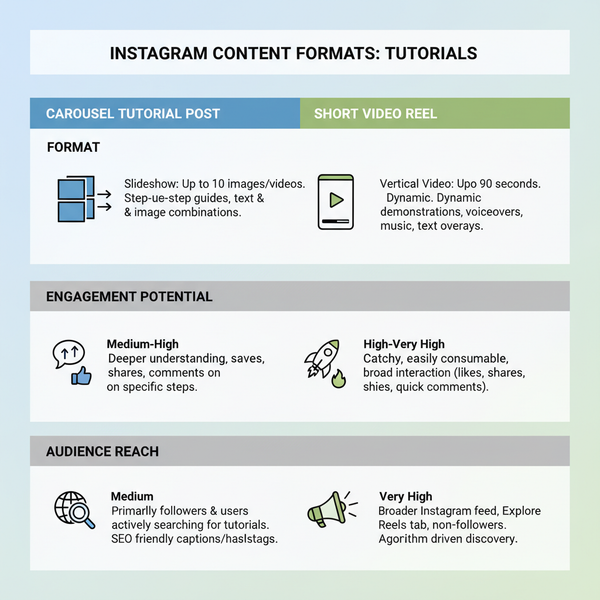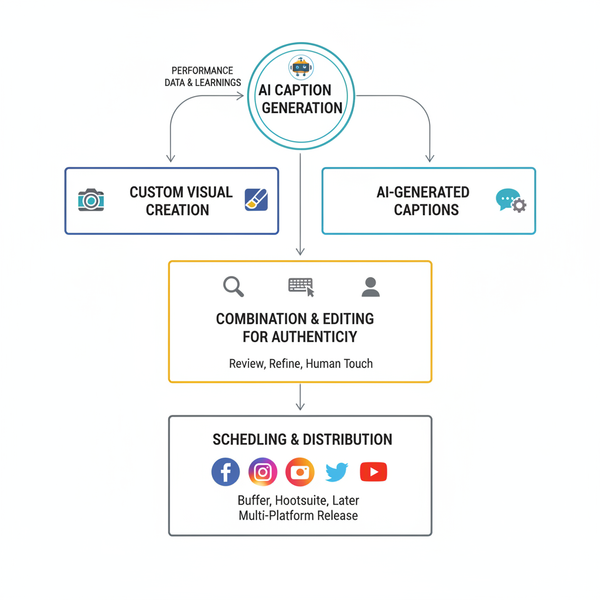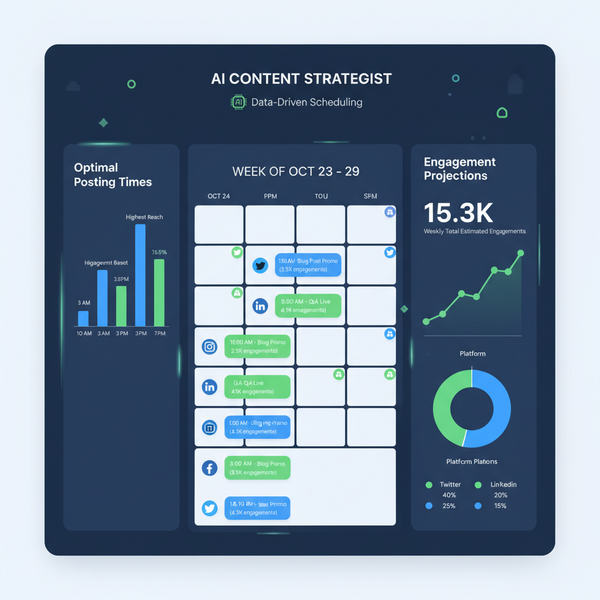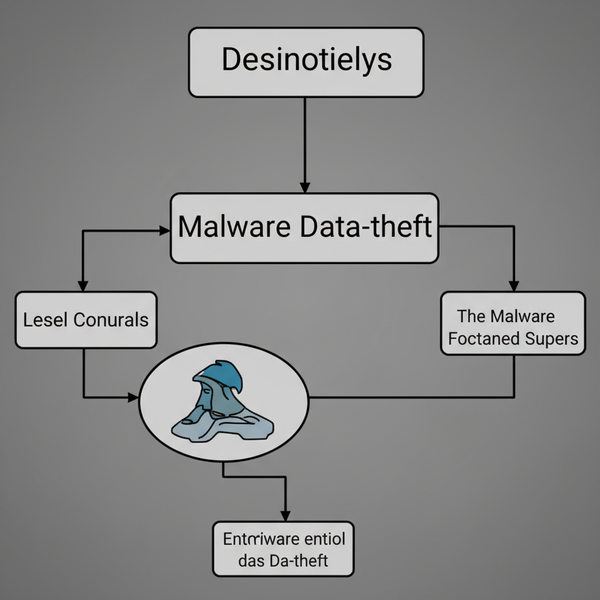1:1 Ratio Images Guide for Social Media Marketing
Learn how to create engaging 1:1 ratio images for social media, with tips on dimensions, design, color, typography, and cross-platform branding.
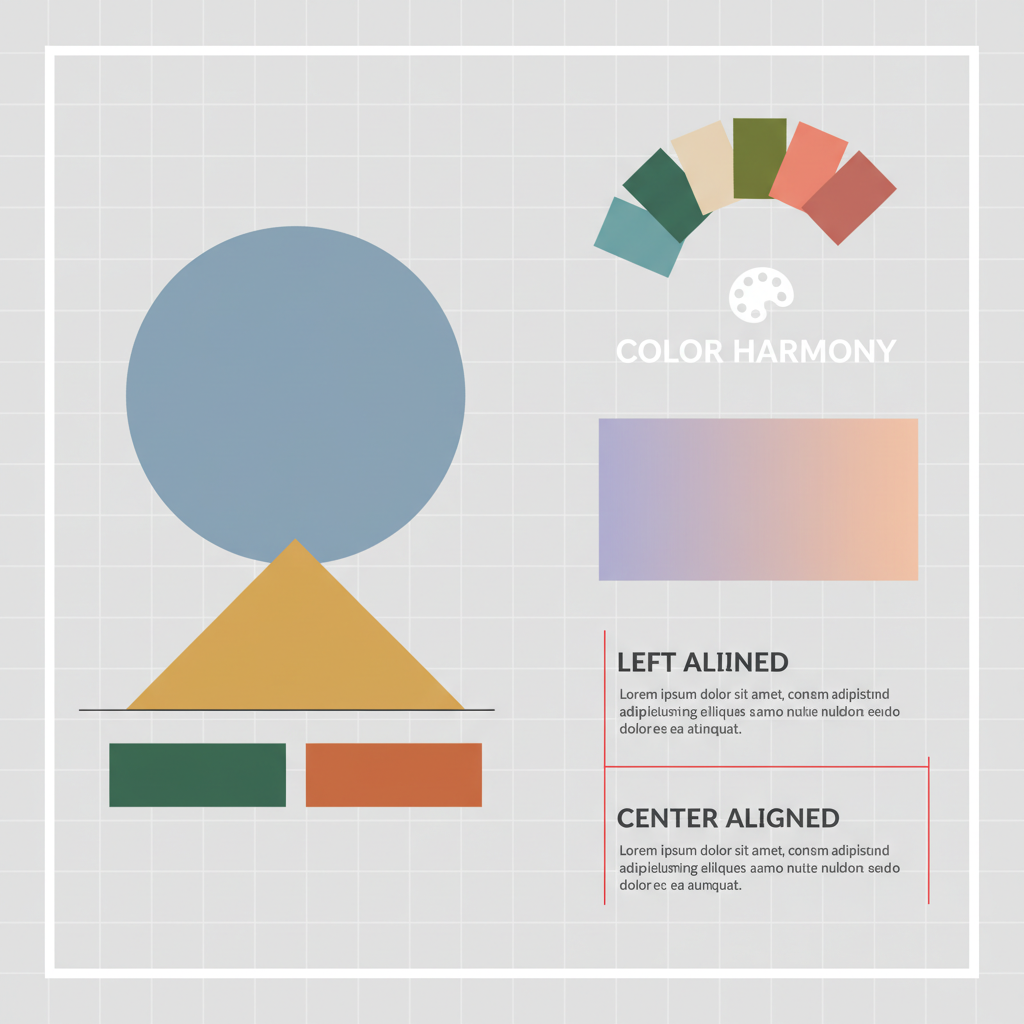
Introduction to 1:1 Ratio Images for Social Media Success
In the world of digital marketing and social media, 1:1 ratio images—perfect squares with equal height and width—have become a go-to format. This square aspect ratio, expressed as dimensions like 1080 x 1080 pixels or 1200 x 1200 pixels, is widely favored because it balances visual appeal with cross-platform compatibility. Whether you’re posting on Instagram, Facebook, LinkedIn, or Pinterest, understanding and using 1:1 images effectively can dramatically boost your content’s engagement and brand consistency.
---
Understanding What 1:1 Ratio Images Are and Why They Matter
A 1:1 ratio image refers to a square-format image where the height and width are exactly equal, forming a perfect square. Common dimensions include 1000 x 1000 pixels, 1080 x 1080 pixels, or 2048 x 2048 pixels, depending on the resolution and intended use.
The 1:1 ratio has become a social media staple because it provides a visually balanced frame that looks consistent across devices. Unlike landscape or portrait formats, square images occupy more space in feeds, capturing attention while being easy to crop and resize.

Square images are especially optimized for platforms such as Instagram, Facebook, LinkedIn, and even Pinterest, ensuring your content remains adaptable without losing key visual elements.
---
Benefits of Using Square Format Across Platforms
Using 1:1 ratio images provides several strategic advantages across major social networks:
- Platform Versatility
- The square format is universally supported and adapts to both desktop and mobile screens.
- Feed Dominance
- Square posts cover more vertical space in mobile feeds compared to landscape images, leading to higher engagement potential.
- Consistency and Branding
- Uniform aspect ratios help maintain a cohesive grid layout for Instagram and a recognizably branded style.
- Time Efficiency
- You design once and use across multiple platforms without creating separate aspect ratios.
---
Technical Specs: Optimal Dimensions and File Formats
Choosing the right dimensions and file format is crucial for achieving high clarity without unnecessarily large file sizes.
| Platform | Recommended Dimensions | Preferred File Format | Max File Size |
|---|---|---|---|
| 1080 x 1080 px | JPEG, PNG | 30MB | |
| 1080 x 1080 px | JPEG, PNG | 15MB | |
| 1200 x 1200 px | JPEG, PNG | 5MB |
Tip: Always work with high-resolution originals and resize at export to avoid losing quality.
---
Designing Visually Balanced Square Images
Proper composition ensures that your square images remain engaging and easy to read:
- Center Focus: Place your main subject centrally to leverage symmetry.
- Rule of Thirds Adaptation: Even in a square format, applying grid-based composition improves aesthetics.
- Whitespace Management: Add breathing room around key visual elements.
- Layering Elements: Combine text, shapes, and imagery judiciously.
---
Color Theory and Typography Choices for 1:1 Layouts
Color choices directly impact emotional response and aid in brand recognition.
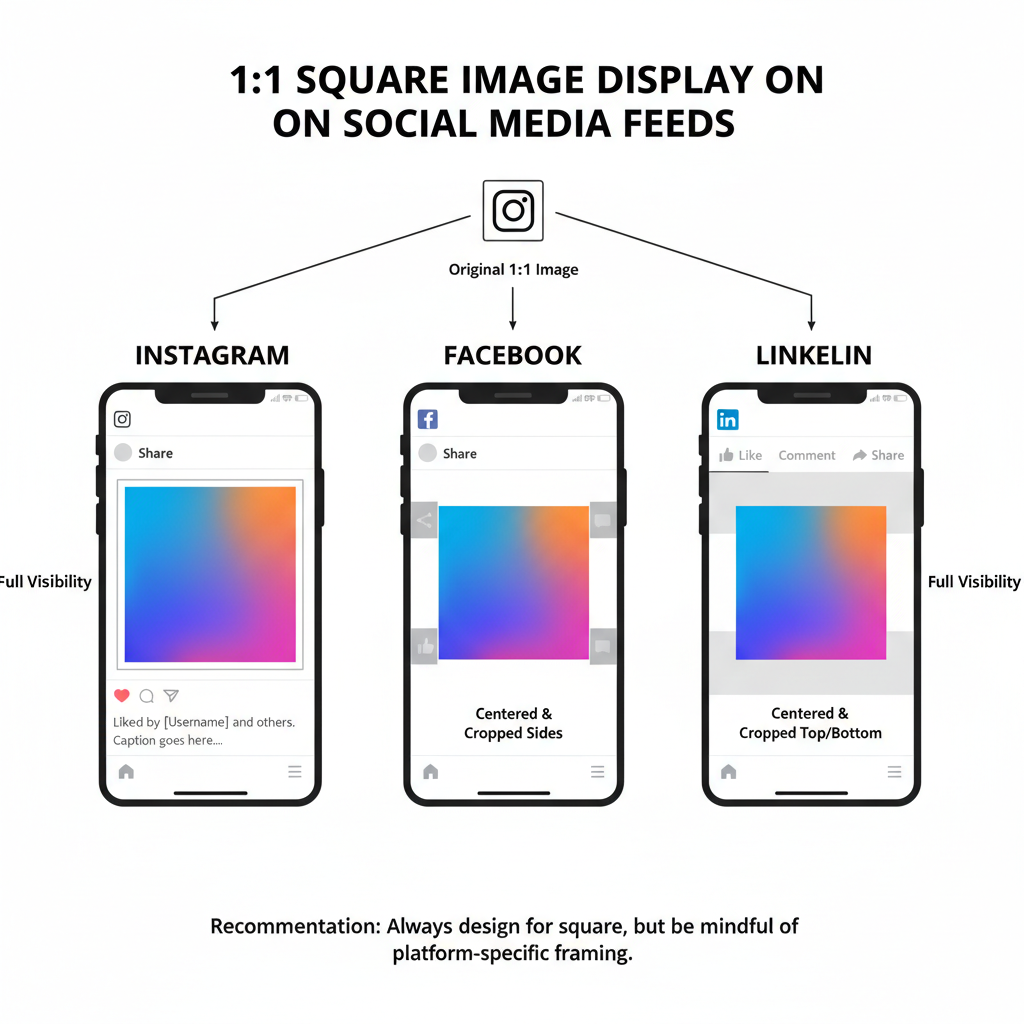
Color Tips
- Use complementary colors for visual harmony.
- Apply high contrast between background and text for readability.
- Stick to your brand color palette.
Typography Tips
- Choose legible sans-serif fonts for modern appeal.
- Maintain a minimum font size of 16pt for social media graphics.
- Limit to two font styles per image to avoid clutter.
---
Tools and Software for Creating 1:1 Images
Several software tools make creating square images straightforward:
- Canva – Beginner-friendly with built-in social templates.
- Adobe Photoshop – Professional control over design and output.
- Figma – For collaborative design workflows.
- Mobile Apps – Lightroom Mobile, Snapseed, VSCO for mobile editing.
Sample Canvas Setup in Photoshop:
File > New > Width: 1080 px, Height: 1080 px, Resolution: 72 dpi (screen)---
Optimizing Image Quality for Fast Loading
Large files can affect page speed and engagement, so optimize images with care:
- Use JPEG for photos; PNG for graphics with transparency.
- Compress using TinyPNG or Squoosh.
- Export at 72 DPI for web to balance detail and size.
- Enable progressive JPEGs for faster visual loading.
---
Accessibility Considerations in Image Design
Inclusive design benefits every audience segment:
- Alt Text: Write descriptive alternative text for all visuals.
- High Contrast Colors: Improve readability for users with impairments.
- Minimal Text in Images: Text inside images is unreadable to screen readers.
Example Alt Text:
"Square format image showing a smiling person holding a coffee cup in a cozy cafe."---
Brand Consistency: Maintaining Tone and Style
Consistent branding makes your content instantly identifiable:
- Stick to a consistent color palette.
- Use uniform photography style or filters.
- Keep messaging tone aligned—formal, casual, or playful.
---
Testing Engagement Metrics for 1:1 vs Other Ratios
Measure results to determine the best format:
- Create both 1:1 and non-square versions of your post.
- Use A/B testing or vary posting times.
- Track likes, shares, comments, CTR.
- Compare and calculate ROI.
---
Advanced Tips: Carousels and Interactive Media
Elevate your square posts with richer content:
- Animated GIFs highlighting features or events.
- Carousel Posts to tell multi-frame stories.
- Interactive Elements like polls or clickable buttons on certain platforms.
---
Common Mistakes to Avoid
- Low Resolution causing pixelation.
- Visual Overcrowding reducing clarity.
- Ignoring Mobile Previews before publishing.
- Inconsistent Styles confusing users.
---
Brand Case Studies Using 1:1 Images
Example 1: Coffee Brand on Instagram
A boutique coffee company uses minimalistic 1080 x 1080 flat-lay compositions, boosting engagement 35% post-switch.
Example 2: Fitness Influencer on Facebook
Workout infographics in square layout fit perfectly across devices, increasing shares.
Example 3: SaaS Brand on LinkedIn
Bold 1200 x 1200 graphics communicate product value, raising webinar CTR.
---
Conclusion
The 1:1 ratio image is essential for modern social media marketing. It simplifies cross-platform design, maximizes engagement, and reinforces brand identity. By mastering composition, color theory, optimization techniques, and consistency, you can make square images a powerful asset in your digital strategy. Keep experimenting with features like animations and carousels, and track metrics to refine results.
Ready to boost engagement with 1:1 formats? Start designing your next square post today and watch your metrics climb.

